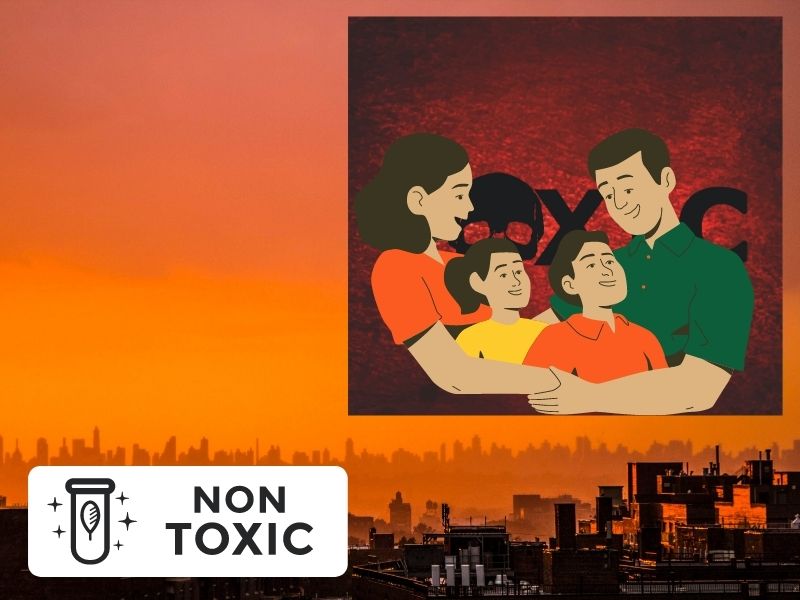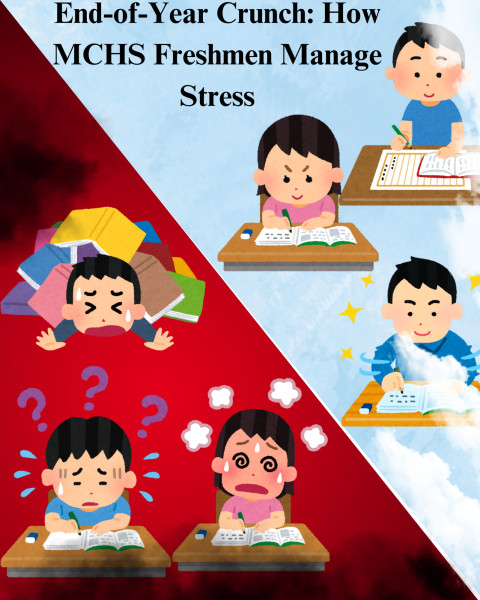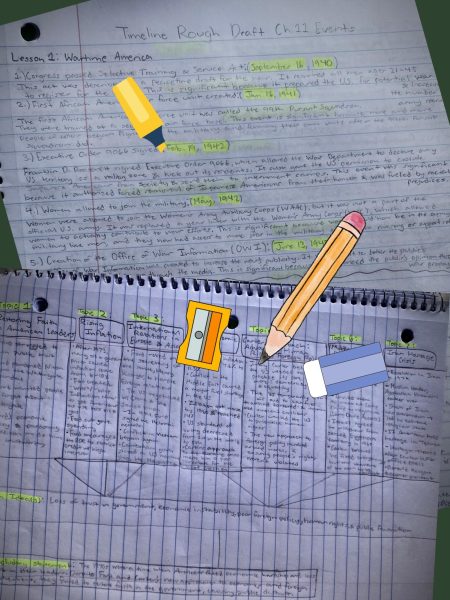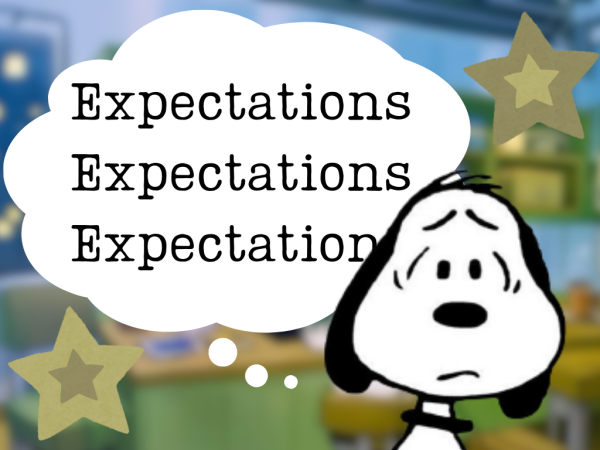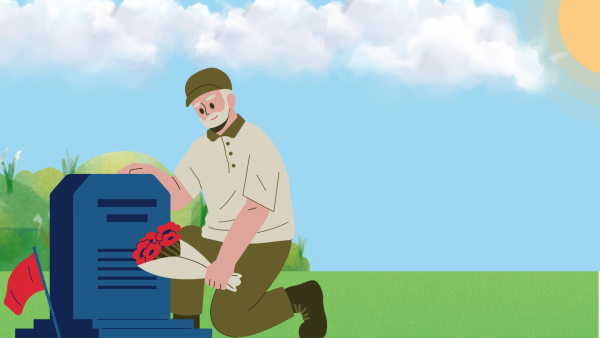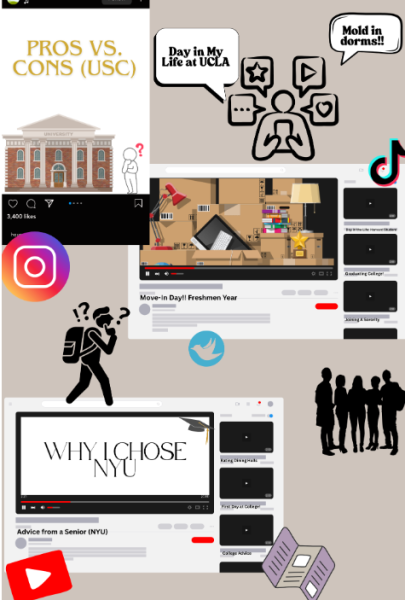Don’t drink poison because you’re thirsty
Ashley Quinones (created with Canva)
Not every happy family is healthy because some have toxic behaviors.
Since you were a kid, you were always told to obey and respect your parents. That is what is expected of you even when you are older. So parents have some control and say in their children’s life but sometimes it isn’t for the greater good. Parents are any other people; they can turn toxic but there is a difference between toxicity and parenting. You just need to be able to know the difference.
The difference between parenting and toxicity
Senior Arlene Rufino said, “Toxic means that they belittle you and they aren’t very encouraging, bring you down all the time, very controlling, they aren’t supportive, don’t push you to become a better person. They just make you feel and make you believe you are a bad person or they are just overly controlling in everything you do.”
Toxicity is like poison. You feel horrible after you take it or in this case go through it but sometimes you don’t notice the symptoms until someone else points it out to you.
“Toxicity is someone that’s not good for you mentally, physically, emotionally. They just bring you down and make your life miserable. Toxicity with parents is the worst because you’re trying to live up to their expectations of what they want their child to be and you try but they just keep telling you crap. They bring you down a lot and make life miserable and you feel suffocated and can’t do anything,” said senior Daniela Arredondo.
Toxicity affects a person’s state of mind and their entire life.
An anonymous freshman said, “A metaphor I like to use is ‘My mind is my own island, if people are dumping their trash on my island it becomes toxic, when they don’t fix themselves and they know they are hurting you. It is toxic.’”
Toxicity within your own household is overall very difficult but one of the most challenging parts is noticing when things have turned unhealthy. When you are in that situation, sometimes you don’t notice key things unlike when someone can see what you’re going through.
Rufino said, “I can tell the big difference when they are parenting you and when they are controlling. When she is like don’t do anything that’s going to hurt you it’s like okay I understand but if she doesn’t want me to do something because it isn’t gonna benefit her because it’s not what she wants then I feel like that’s more controlling. There is a fine line between parenting and controlling.”
An anonymous senior said, “Having every action you do criticized or questioned. Belittling a grade you are proud of like ‘You should have _ grade all the time.’ Trying to isolate you from friends, commenting on physical appearance. Having yourself compared to siblings and friends, trying to make your friends seem like bad guys, or blaming them for behaviors, the scapegoat of everything they don’t like, etc.”
In certain situations, parents are required to take action and control over their children and the decisions that are made. The main thing to focus on is the reason behind why they make certain restrictions.
“My mom is parenting when she says ‘Don’t do drugs, don’t go party late at night.’ She’s being my mom but when she says, ‘Don’t go to this school because I don’t want you to go to this school’ or ‘Why would you leave me to go over there.’ Or if I decided to go to a friend’s house, a friend who I have known basically my whole life, she will be like, ‘You don’t love me that’s why you don’t want to spend time with me,’” said Rufino.
The key difference is that with healthy parenting, they put your safety, feelings, and thoughts into consideration before they make a decision. They want what is best for you and not what they personally have in mind for you.
Darby Faubion, the author of the article Toxic Family Dynamics: The Signs And How To Cope With Them, goes on to give examples of what is considered toxic. As we all know, parenting includes restriction and discipline but there is a big difference between parenting and controlling.
“When behavior becomes forceful or leaves someone in fear, this is controlling. At first, many adults may dismiss the concerning thoughts and say the other person is just trying to ‘do what’s best for me.”’
An anonymous student said, “Difference between toxicity and basic parenting is that toxic parenting seems to be more controlling of the actions their kids do. While basic parenting seems to be open-minded and understanding of their kid’s actions.”
The difference between discipline and punishment
Parents are supposed to be in charge of their children but the article goes into detail about how parents can turn punishment into their own personal way of deflecting when it is not the child’s fault.
Discipline is defined as a way to teach someone how to obey the rules that are set. When parents discipline their children, it is because the child did something they weren’t supposed to and are being taught a lesson but when there is no lesson to be learned, then that counts as being toxic.
The article said, “This is a type of discipline or punishment that occurs when no lesson is being taught. Rather, if a parent or spouse has a bad day, they may take frustrations out on another family member. At times, the punishment may be excessive for the type of behavior that needs to be corrected.”
Losing your identity
Another effect of having that poison surrounding you is the fact that we lose our identities. Our identities are so meaningful; that is how you are with a person but once someone starts dictating the kind of person they want you to be, you are being programmed to be who they want instead of being who you are.
Rufino said, “I have seen it go into my romantic relationships. Like I was told by family members you can’t wear this or that or you shouldn’t wear this. It got to a point where I wasn’t allowed to wear certain colors so when I got into a relationship it was like he was very controlling what I could and couldn’t wear and to me, it was normal to be told what I could and couldn’t wear and because of that I definitely lost my identity. It goes into your relationships, even my friendships. I have family members who are twice my age and they feel like they need to compete with me or belittle me. So when I have friends and they would tell me the same thing I just thought it was normal for your friends to be jealous of you and constantly try to belittle you.”
Thinking this is normal– being blinded by your upbringing
Other aspects that the article goes into detail about that count as being toxic are they always blame, threaten, criticize, and neglect the person and/or their feelings.
“I always thought it was normal for your mom to just act like that or your family members. I had family members who would constantly just like belittle whether it was just my physical appearance, who I was as a person, who I was dating, what I was doing, or where I was working. I thought it was normal to be constantly told by them because we were told your family is always going to push you into being a better person. Instead of it being in the sense of like ‘Oh yeah you can do it you got it, it was more like really? This is what you’re doing with yourself,’” said Rufino.
When you are in a situation you are blinded by what they have fed you. What is weird and different to others, is normal everyday life to you.
Rufino said, “Once I was talking about it with my friends I was like ‘Don’t you hate it when like uncle or aunt is like you’re gaining too much weight?’ and they were like ‘My uncles and aunts have never said anything about my physical appearance,’ so I was like ‘Oh maybe that’s not normal.’”
We either need someone else to point out the toxicity to us because it is blinding or we just need to get out of that situation and then we think about it, we remember all the memories, situations, arguments, any little thing and then that clears the fog.
“I didn’t notice until later. It’s sometimes when you’re in that moment you think ‘It’s not that bad,’ but then you think about it after and you’re like ‘Why did I put myself through that.’ When I notice that people don’t normally do stuff like what they would do. After it happens I can somewhat see when it started and how it progressed and how it affected me,” said Arredondo.
The reason for this is that they have been lied to. Having toxic people say that they care about us and use the excuse that it’s for our benefit is so we don’t believe they would have selfish and malicious intentions.
Because you believe that they care about you or are guilt-tripping you to stay, it becomes hard to do what’s best for you. You tend to be split between leaving and staying.
Unhealthy guilt that stems from developing a healthy, independent mindset & loving detachment
Rufino said, “The guilt. I was planning on leaving for college before I made the decision and the main thing was the guilt. Ima leave my little brothers with them, they aren’t going to have me anymore. Who is going to be able to do this for my mom who is going to do this for my dad? Just things like that. The guilt is what really gets you. I feel like once someone becomes controlling over you, you feel like they need you or you need them so when you’re trying to leave there is that guilt of like no but I need them or no they need me. Just being able to let go.”
To get out of a toxic situation, you don’t always have to leave the house if you aren’t in a life-threatening situation. Some other options are to talk about it or make yourself busy.
Rufino said, “Because I’m always working they tend to pick a fight like ‘You’re always working you don’t love us anymore,’ so I feel like you can try to talk to them about it or as you’re getting older you can be like ‘Hey I’m starting to become an adult, I need to make my own decisions for myself.’ Because my mom didn’t consider that I was becoming an adult until I told her this is the school I’m going to for college and this is what I have to do and she was like ‘Oh you do have to have a little more freedom to make your own decisions.’”
“A lot of people don’t leave their household but they can distance themselves to the point that they don’t depend on anyone. They can always stay at someone’s house so the situation cools down,” said Arredondo.
If being in that situation is just too difficult the best thing to do is make a plan to leave. Or do anything that would be good for your mental and physical being.
The anonymous student said, “Ask people you trust and confide in for help. Talk to a counselor or therapist, and open up to them about problems in your household. Move out with a close relative or older sibling to avoid that toxic household.”
Leaving is never easy. There are lots of things to take into consideration so before deciding that it’s time to go, it is crucial to make sure you have somewhere to go.
An anonymous senior said, “Plan ahead of time, have friends or other family members help you. Go online and find resources to help you, therapy, housing, etc. There are times when they won’t let you access the internet. Go to places with free internet and electronics. When they argue in my experience it is best if you make it seem like you are paying attention, short answers to get to the point. Toxic parents want to control and seek attention. In a worst-case scenario, they kick you out, have some money saved up just in case, some clothes set aside and ask friends for help or go to shelters.”
The best solution is to find help and get out once you have a stable reliable plan. Sometimes therapy is a solution to stop the generational trauma that just keeps going around. The difficult part in asking for help from an adult is the trauma you got from the situation.
After finding a stable place to stay, something victims of a toxic household need to keep an eye on is their mental and emotional health. Being brainwashed to believe something that isn’t true doesn’t mean that it’s easy to stop believing whatever they have been told even if they know it isn’t true.
The anonymous student said, “Having trauma or causing different types of disorders such as depression, anxiety, etc. Not being able to have a good relationship with others, not being as trusting, or being scared of confrontation. You become more introverted which becomes harder to open up to people or even just build a friendship in general. They tend to focus more on their inner thoughts/ideas rather than be open-minded and explore what’s happening around them.”
An anonymous senior said, “It will be hard to have full trust in adults that want to help. For a relationship, it will be hard to see red flags or be hyper-focused on everything they do wrong and overthink it.”
Even after leaving, a toxic situation has already affected a person’s state of mind and how they view the world and themselves so they accept unhealthy things.
“After being in a toxic relationship with people who you’re supposed to trust and love, I feel like it becomes harder to tell the difference between a toxic and healthy relationship. You become victims to their manipulations and it becomes harder to set boundaries. Being in a toxic relationship sometimes means dealing with gas-lighting. You end up feeling like you are the problem and like you are the one that did wrong. You are loved and you deserve better,” said an anonymous freshman.
Healthy boundaries
It is crucial to set boundaries for yourself. You need to realize that relationships and friendships are all about respect for each other’s limits. Knowing when someone is stepping over the line is difficult when you are so used to people doing it.
“At the end of the day, you know when something is normal for you, and it’s kind of hard to break out of it. I can’t tell you oh this person is being toxic to you because to you that’s just normal so eventually, you’ll learn. The hardest part of unlearning and learning how to have a healthy relationship is having boundaries. You’re so used to not having any so I feel like that’s the hardest part. Setting boundaries and not allowing anyone to overstep them,” said Rufino.
In the movie “Lilo & Stitch,” there is a line that says “Ohana means family and family means nobody gets left behind or forgotten.” Although this line can be true, just because someone is family does not mean they can’t be toxic or that they have your best interest in mind.
An anonymous freshman said, “I know that when it comes to family, we don’t want to believe that our families are abusive or toxic but they are sometimes. When they’re abusive, people like to say ‘It’s your family,’ ‘They love you,’ and ‘You’re supposed to love them, even with their flaws.” Those flaws that are toxic and abusive are excuses for the things that some people put each other through.”
We need to be able to find the difference between parenting and controlling and have boundaries set for everyone: friends, romantic partners, and especially family. Apologizing for overstepping a boundary is acceptable only if they learn to not do it again, and learn to respect the person’s space and who they are as a person.
Rufino said, “There is this one saying that says ‘If I were to come back as my mom’s mother, I would so she could get the love she deserves so I can get the love I deserve.’ It’s more than breaking the generational trauma.”
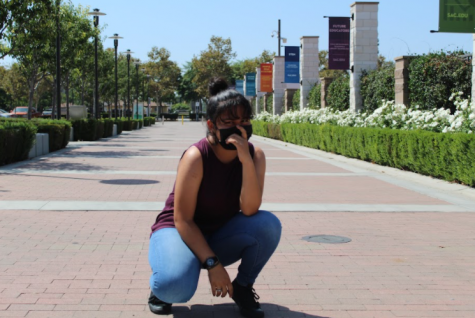
I have a pet bunny and turtle, I have only been to Mexico once, and I will hopefully graduate with four AA’s.
































